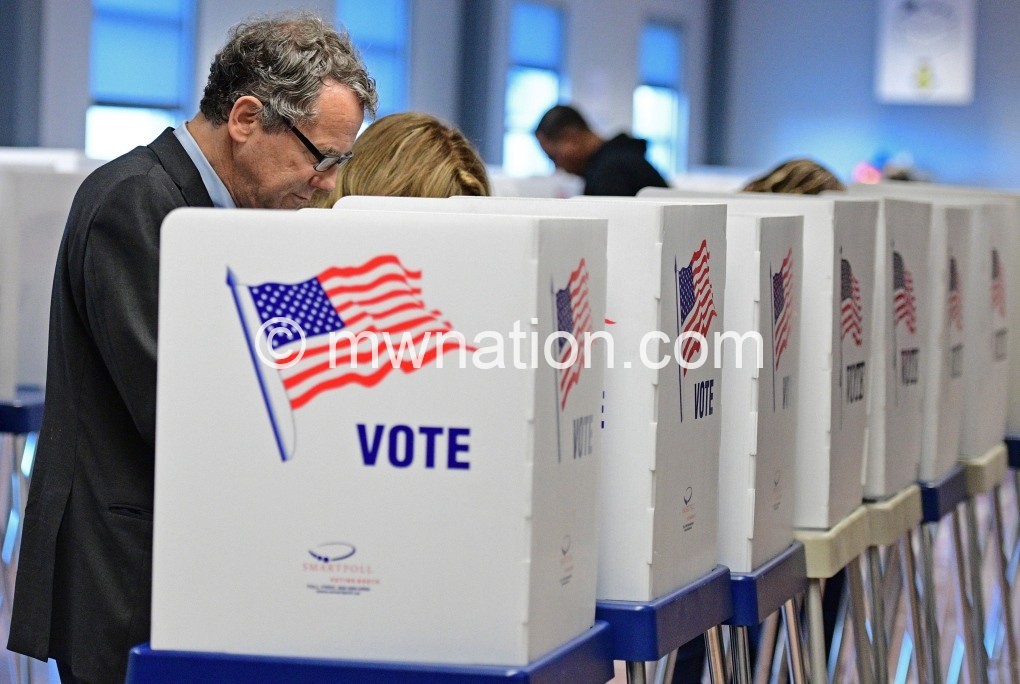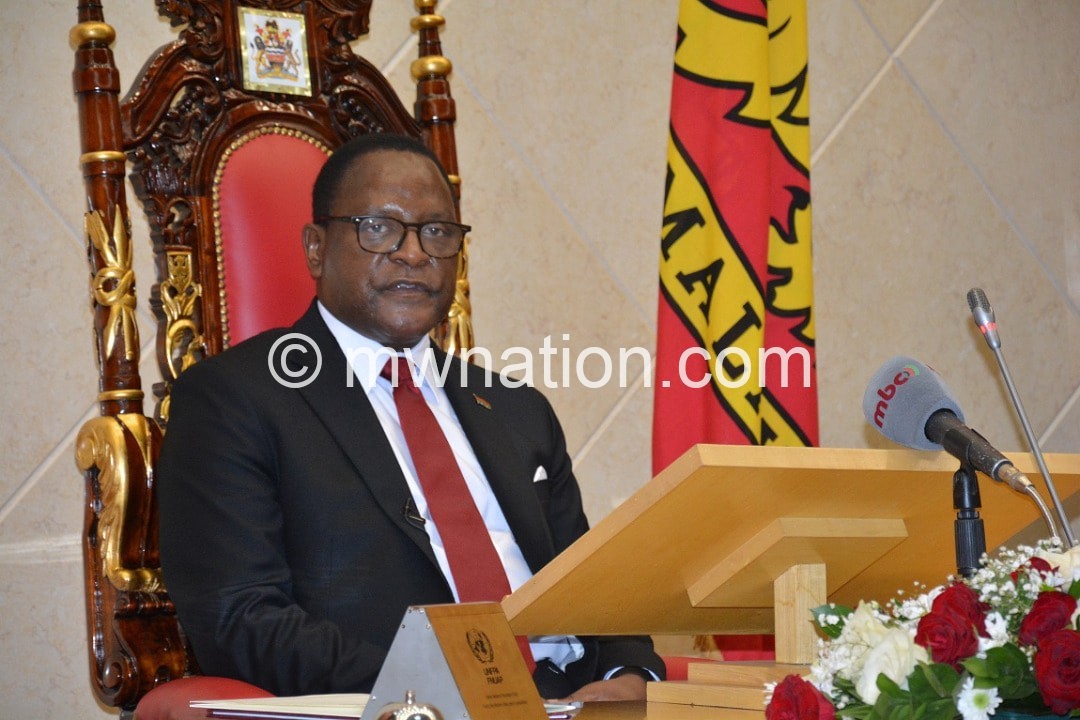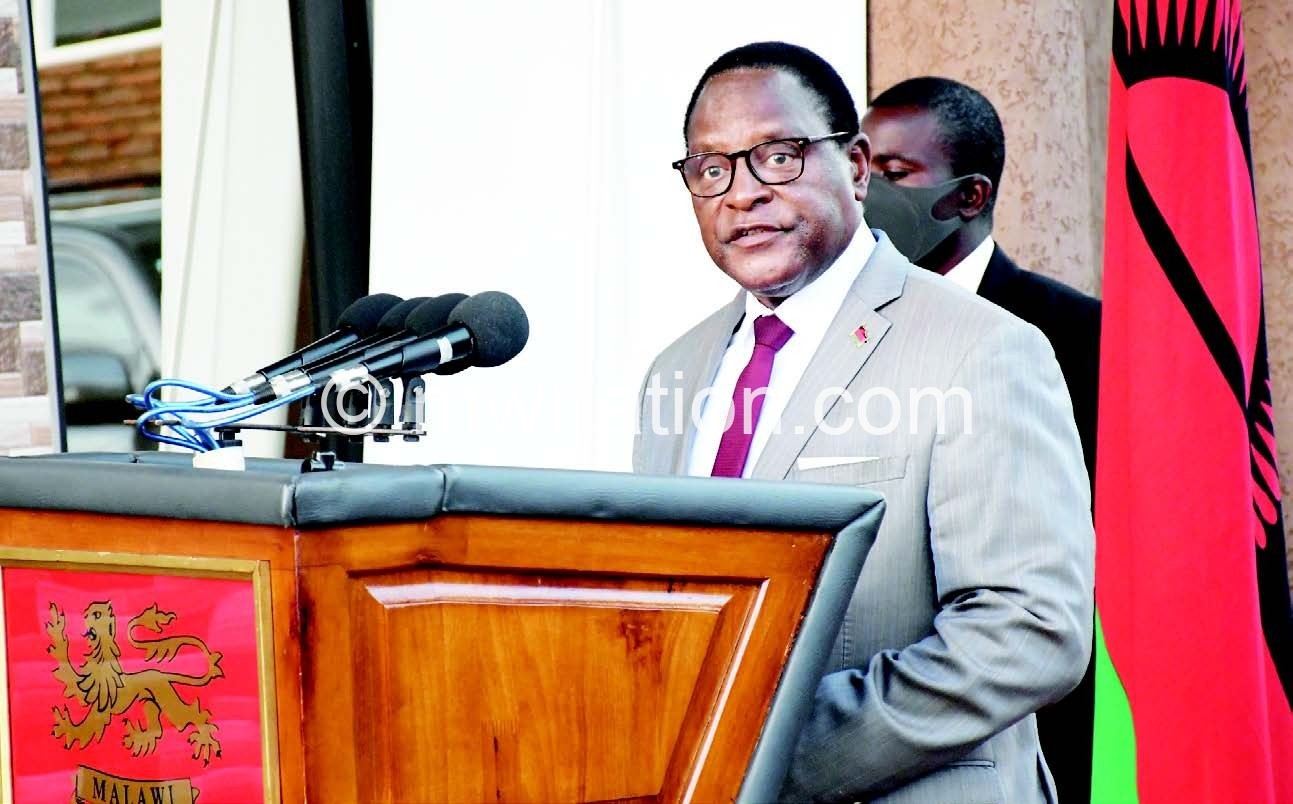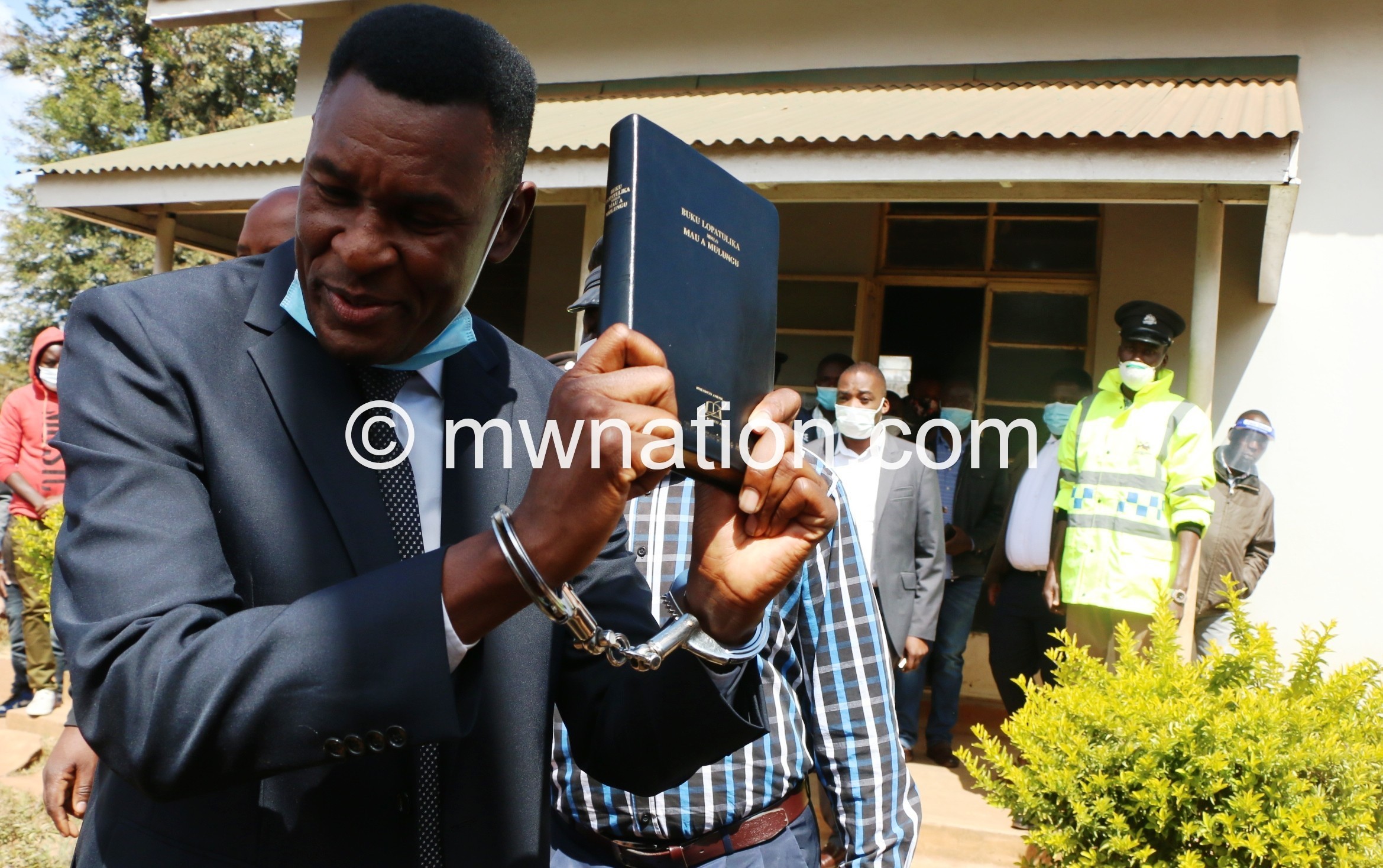Chakwera’s image building appointments
President Lazarus McCarthy Chakwera has elevated four judges to serve at the Malawi Supreme Court of Appeal bench. The judges include justices Healy Potani, who chaired the panel of the Constitutional Court that ordered the June 23 fresh presidential election, John Katsala, Ivy Kamanga and Charles Mkandawire.
The President also named new judges of the High Court of Malawi. Women dominate the list.
Making the list is Agnes Patemba, who has been a star while serving as Judiciary spokesperson, Asante Kishindo, Violet Chipao, Anneline Kanthambi, Vikochi Chima, Mzondi Mvula and Simeon Mdeza.
Lawyers Masauko Timothy Msungama, William Yakuwawa Msiska, Maureen Kondowe, Mandala Mambulasa, and Carlotte Wezi Malonda have also joined the High Court bench.
The appointments are a small win for the women’s rights groups and other civil society groups in Malawi who two weeks ago held street protests against the president’s failure to achieve gender balance in his recent public service appointments.
Women in the country have accused President Chakwera of failing to fulfill the Gender Equality Act which requires 60-40 representation of either men or women in public appointments.
Maggie Kathewera Banda, who led Friday’s protests in Blantyre, and is executive director of a lobby group, Women’s Manifesto, should be the happiest.
The President had promised women—during campaign— that he will make sure that women are given leadership positions. But since taking over power that has not happened.
Chakwera’s 31-member Cabinet, has only four women with full ministerial positions. His second appointment activity of members in 54 boards of public institutions—he picked a 20 percent of women into the boards.
The President pretended all is well and hoped no one would notice his continued institutionalization of gender imbalance.
When gender activists—including Kathewera Banda cried foul, Chakwera at a press conference marking his 100 days in office, tried to justify his skewed appointment, claiming the low female representation is because he could not find well-qualified women to fill the Cabinet posts.
He even challenged women’s rights groups to provide him with candidates for top-level positions.
What an insult!
So far, Chakwera has shown that he is not the right man to break the barriers against women representation in politics or indeed to promote their interests. He has been cementing a trend of looking down upon women with his appointments.
Had his behaviour gone unchecked the new Tonse government would have embraced the ‘we could not find well-qualified women’ as policy for hiring people in the civil service—which is already heavily male dominated.
That’s why, we on the street, see High Court judges appointments on Monday as nothing to do with gender equality, but for image building.
We have seen this behaviour of using women in high positions to build a positive international image. Former president Bingu wa Mutharika used Joyce Banda as his vice-president to make Malawi likable to donors.
Also the tradition of appointing women as ministers of Gender has continued to merely put Malawi on good terms with the international community. These minor things, Chakwera may want to note, only make gender issues ‘for women only’ and their efforts ‘cosmetic and symbolic’.
If he means well, he must do the needful; when he reshuffles the Cabinet and parastatal boards, he must appoint more women in those positions according to law.
His appointments on Monday are nothing but a small win for women rights activists. The biggest winner, of course is the government which will repeatedly use the appointments on international podiums as bait to recapture the much needed resources from the international community.





